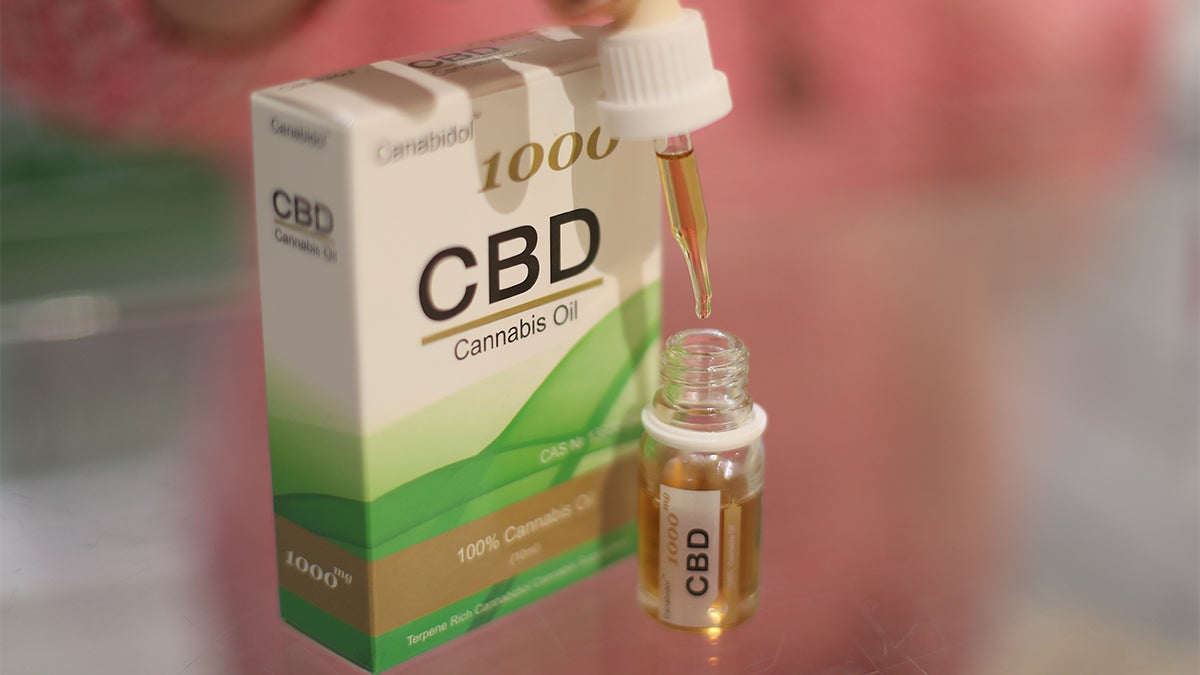CBD may be the solution for the NFL’s opioid use

The NFL’s opioid problem has been a long reported topic in sports. But a trending alternative method of pain relief has many asking the same question: is cannabidiol a safer substitute?

One former NFL player says yes.
“I personally think ‘CBD’ is a safer and better alternative to the addictive opiates,” former NFL defensive back Ryan McNeil said.
Approximately 52 percent of NFL players have been exposed to opioids due to the high frequency of injuries they sustain. Of the 52 percent, 71 percent have admitted to misuse of the prescription pills.
Prescription drug use is ingrained in the history and culture of the NFL. Players are expected to perform at their best despite fatigue and injuries. The use of opioids may extend careers, but it also increases the chance of an opiod addiction.
In 2012, a Washington University at St. Louis study found that, despite the Drug Enforcement Agencies (DEA) guidelines, each team was given about 5,700 anti-inflammatory drugs and 2,200 doses of prescription medications. That averages out to about seven prescribed doses per week for each player.
Dr. Anikar Chhabra, director of sports medicine at the Mayo Clinic Phoenix and doctor at Arizona State University Health Services, said, “Studies on CBD products and pain control are promising as an alternative to habit forming opioids. There is no consensus yet on CBD efficacy on certain conditions.”
Cannabinoids (CBD) are not addictive and can be used to combat addiction. CBD can be used for a variety of ailments, ranging from anxiety to pain relief. It is a chemical compound extracted from the marijuana plant that does not get you high and is considered a natural supplement.
McNeil said: “I’ve tried CBD, and they seem to work really well for me. Well enough that if I were still playing in the NFL and it was allowed, I would use CBD oil and products to relieve my pain.”
Hall of Fame NFL running back Terrell Davis recently came forward in support of CBD. Davis said if CBD were used during his NFL career he would have been able to play longer.
According to a study published in 2014 in the Hawai’i Journal of Medicine & Public health, people who used cannabis reported a 64-percent decrease in the severity of their pain. Of the tested individuals, not one reported adverse effects from the supplements.
When the Bright Lights Fade is a research project launched by the Realm of Caring. The study looks into CBD’s effects on chronic traumatic encephalopathy (CTE), a highly publicized condition among former NFL players. CW Botanicals teamed up with former Broncos players Nate Jackson and Jake Plummer as well as the former Ravens player Eugene Monroe to fund further research on CBD’s effects on pain and the body, both long and short term.
The NFL has never allowed the cannabinoids use by its athletes. In the current collective bargaining agreement, the rules state any trace of “synthetic cannabinoids” found on a drug test will lead to disciplinary actions under the league’s drug policy.
“League rules would have to be revisited and modified, as these products are banned substances in most leagues, if studies show them to be good alternatives,” Dr. Chhabra said.
The NFL has been reluctant to change its long-standing rule on the substance, despite statistical evidence opioid use is an issue in the league and the fact CBD, unlike THC, is a legal substance in every state in America.
“It’s time for the NFL to change its archaic standards to better protect its players,” Monroe said. “For too long, I've watched my teammates and good friends battle with opioid addiction and leave the game with a long road still ahead; it’s time to make a change.”
There is a professional sports league in the United States adopted an amenable solution. The NHL does not recognize cannabis as an illegal substance, which allows players to use it freely to combat pain. Although the league does not condone the use of marijuana or CBD oil, the players of the NHL are not penalized for using it.
With more than 95 percent of NFL players testing positive for CTE in limited studies and CBD being tested as a remedy for that illness, the NFL is being called upon to answer. Harvard psychiatrist Lester Grinspoon addressed NFL commissioner Roger Goodell, calling on him to see whether, “cannabis… can indeed provide significant protection against the damage of repetitive concussions.”
Lauren Chiangpradit is a junior sports journalism major at Arizona State University
Related Articles
These athletes advocate for CBD oil use
Easy access to opioids sets some athletes up for addiction
Leagues being pushed to allow medical marijuana use for pain management

